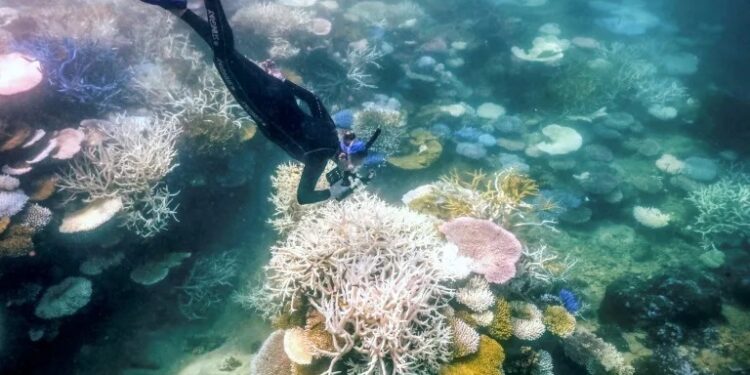Australia Urged by UNESCO to Take “Urgent” Measures to Protect Great Barrier Reef Australia has been urged by UNESCO to take “urgent” measures to protect the Great Barrier Reef, including setting more ambitious climate targets, warned the organization on Monday.
The world’s largest coral reef ecosystem “remains under serious threat,” and “urgent and sustained action is of the highest priority,” said the institution in a report, citing the issue of coral bleaching on the reef.
UNESCO has instructed Australia to provide it with an update on its coral protection and preservation efforts by early 2025 but does not recommend listing the site as World Heritage in danger.
The request from the United Nations body was welcomed by Australian Environment Minister Tanya Plibersek.
“This is a great victory for Queensland, a great victory for the thousands of people who depend on the reef for their livelihoods, and a great victory for all the plants and animals that inhabit it,” she said in a statement on Monday.
Environmental advocacy groups, however, believe that UNESCO’s decision should serve as a “wake-up call.”
“UNESCO has called on Australia to set more ambitious climate targets and has given us a deadline of February 2025 to submit a progress report,” reminded David Ritter, Greenpeace’s Executive Director for Australia-Pacific, noting that “time is ticking.”
The Great Barrier Reef, off Australia’s northeast coast, is experiencing the worst bleaching event ever recorded due to climate change, with 73% of its reefs damaged, announced the Great Barrier Reef Marine Park Authority in April, which is under the jurisdiction of the Australian federal government and manages the reef.
This new episode, caused by rising water temperatures, marks the fifth in eight years.
This phenomenon of decline leads to the expulsion of symbiotic algae that give coral its vibrant color. If high temperatures persist, the coral turns white and dies.














































